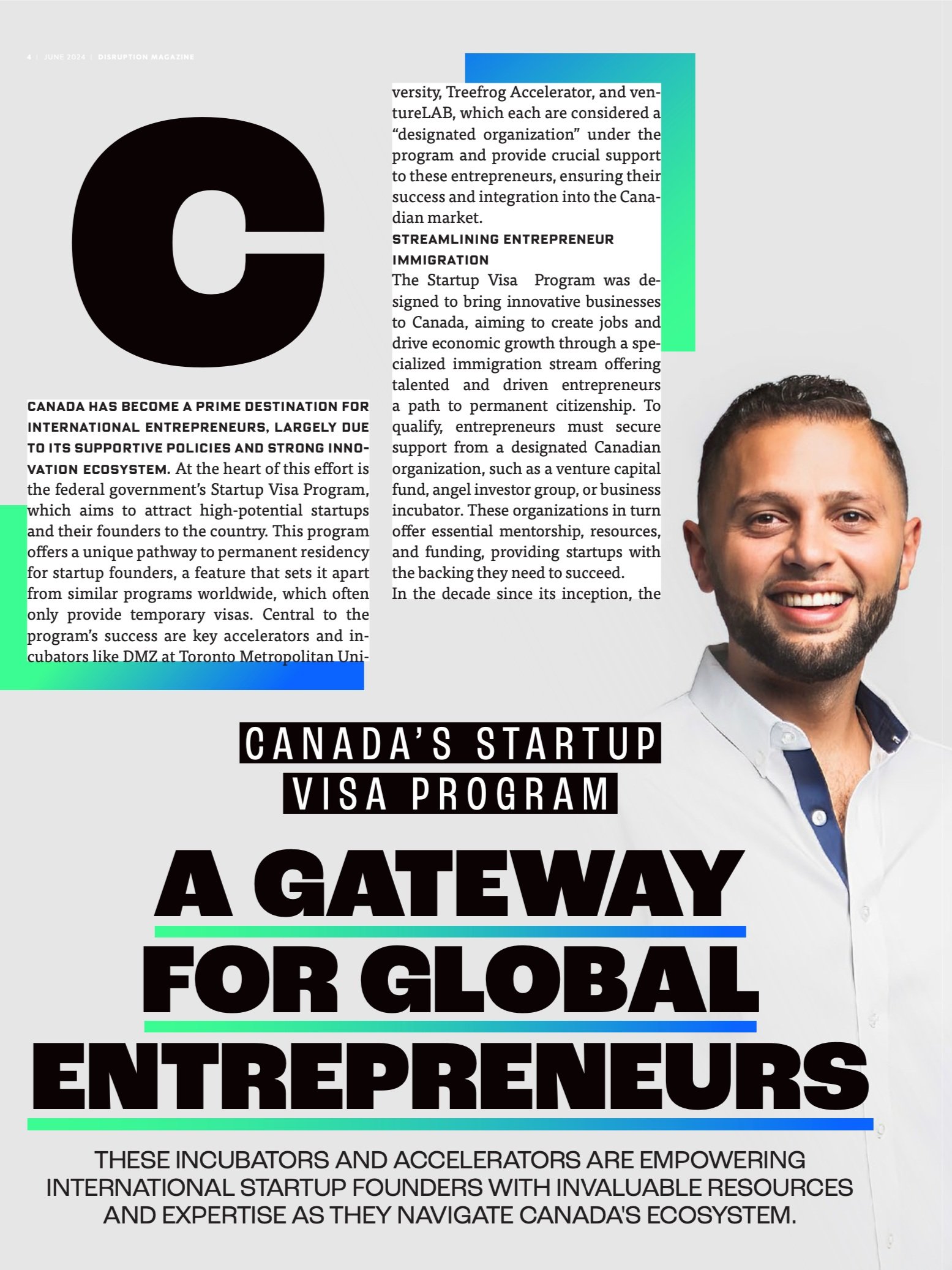Insider Tips for Taking Your Entrepreneurial Ventures to North America
- Navigating Immigration
-
Define business goals and understand corresponding legal requirements and timelines of each immigration program.
-
Ensure you understand the difference between business visitor activities and work before starting business activities.
-
Engage with immigration, employment, tax and corporate experts early to navigate legal complexities.
-
Maintain clear and continuous communication among all stakeholders to streamline market expansion.
For founders in Canada and the United States, expanding your business across the border is often the next step in growing and scaling. But beware: the road to establishing a foothold in these countries is fraught with complexities. For entrepreneurs considering cross-border expansion, we sought the expertise of two seasoned immigration attorneys: Ron Matten, a leading expert in U.S. immigration law, and Pavan Dhillon, a trusted advisor to founders and businesses expanding into Canada.
For Canadian businesses, the U.S. offers proximity to a vast consumer market, a dynamic innovation ecosystem, and attractive tax incentives. On the other hand, Canada appeals to U.S. businesses with its relatively streamlined immigration processes, highly educated workforce, and political stability. Additionally, Canada’s policy allowing spouses to secure work permits enhances its attractiveness as a destination for business expansion.
Matten, armed with over two decades of experience maneuvering through the labyrinth of U.S. immigration law, stresses the importance of strategic foresight. His approach involves providing tailored guidance that considers each client's unique circumstances.
"It’s crucial for entrepreneurs to grasp the limitations on what they can do when moving their business to the U.S.," says Matten. "Recognizing this pivotal moment in the startup journey is essential," he adds. For instance, while you can develop a concept, raise money, attend an accelerator and prepare a pitch deck, you can’t develop a product without legal work authorization. Many entrepreneurs unwittingly find themselves in legal grey areas, Matten says, which can spell trouble for their immigration applications.
Read more about Canada’s Startup Visa Program.
Dhillon underscores the critical importance of seeking early legal counsel. Incorporation is just the beginning. Cross-border expansion requires strategic planning among tax, employment, corporate and immigration advisors.”When all parties understand the timelines and prioritize the appropriate steps in the process, we can significantly accelerate timelines,” she says. This is particularly vital when dealing with complex immigration programs such as Canada’s Start-up Visa Program, a permanent residency pathway, or the Global Talent Stream, which provides fast, predictable work authorization for global talent. Ultimately, choosing the right combination of programs hinges on each entrepreneur’s goals.
Expanding your entrepreneurial journey across borders requires meticulous planning, insightful guidance, and strategic foresight. By leveraging immigration experts like Dhillon and Matten, that dream of market expansion is closer than you think.
Author - Mariam Ibrahim
Mariam Ibrahim is a writer, editor and communications professional currently based in Seoul. She currently serves as Managing Editor of Disruption.















